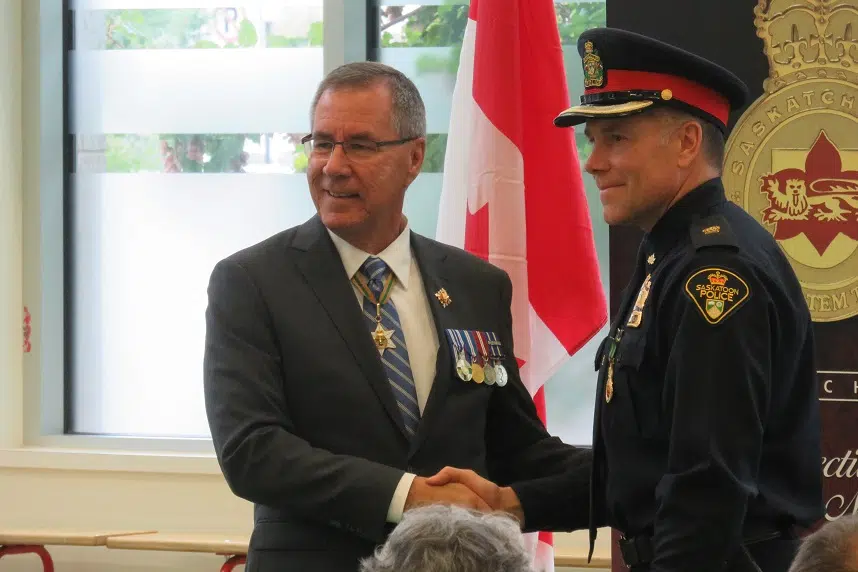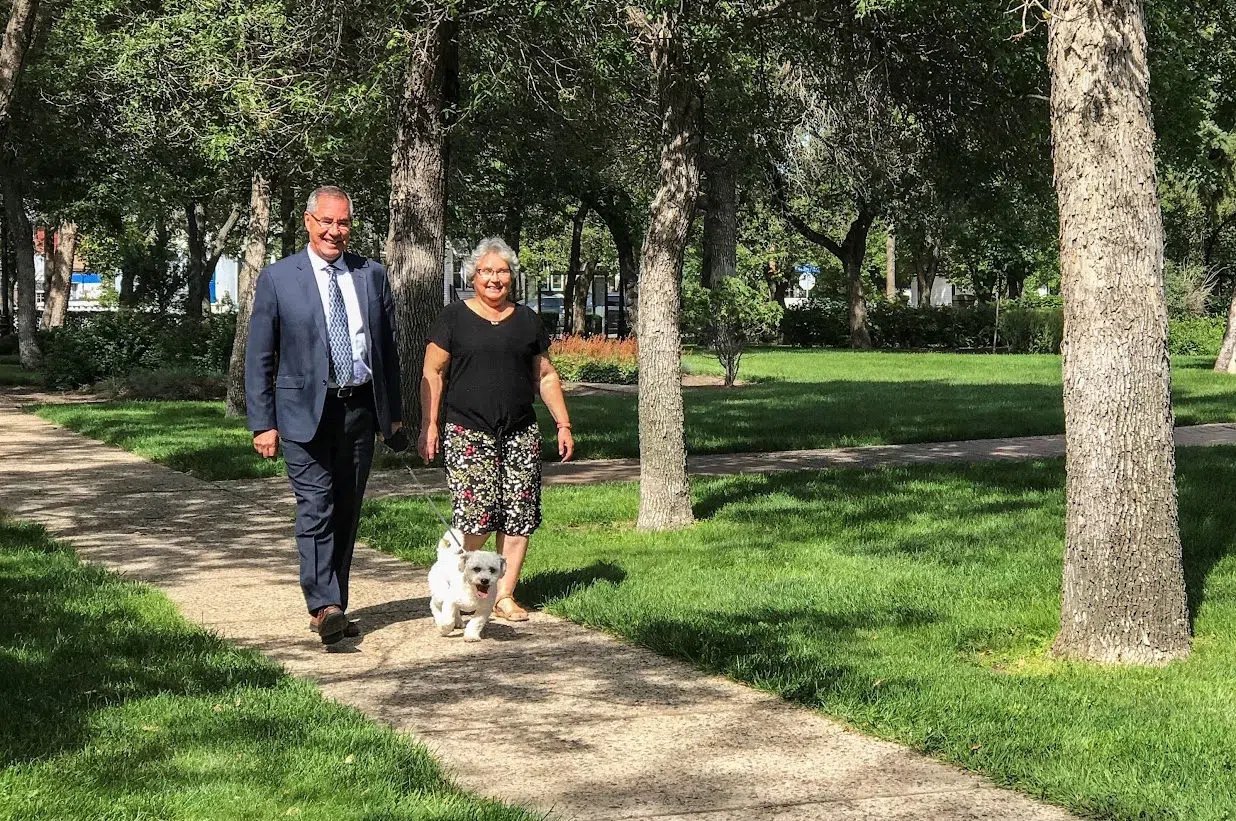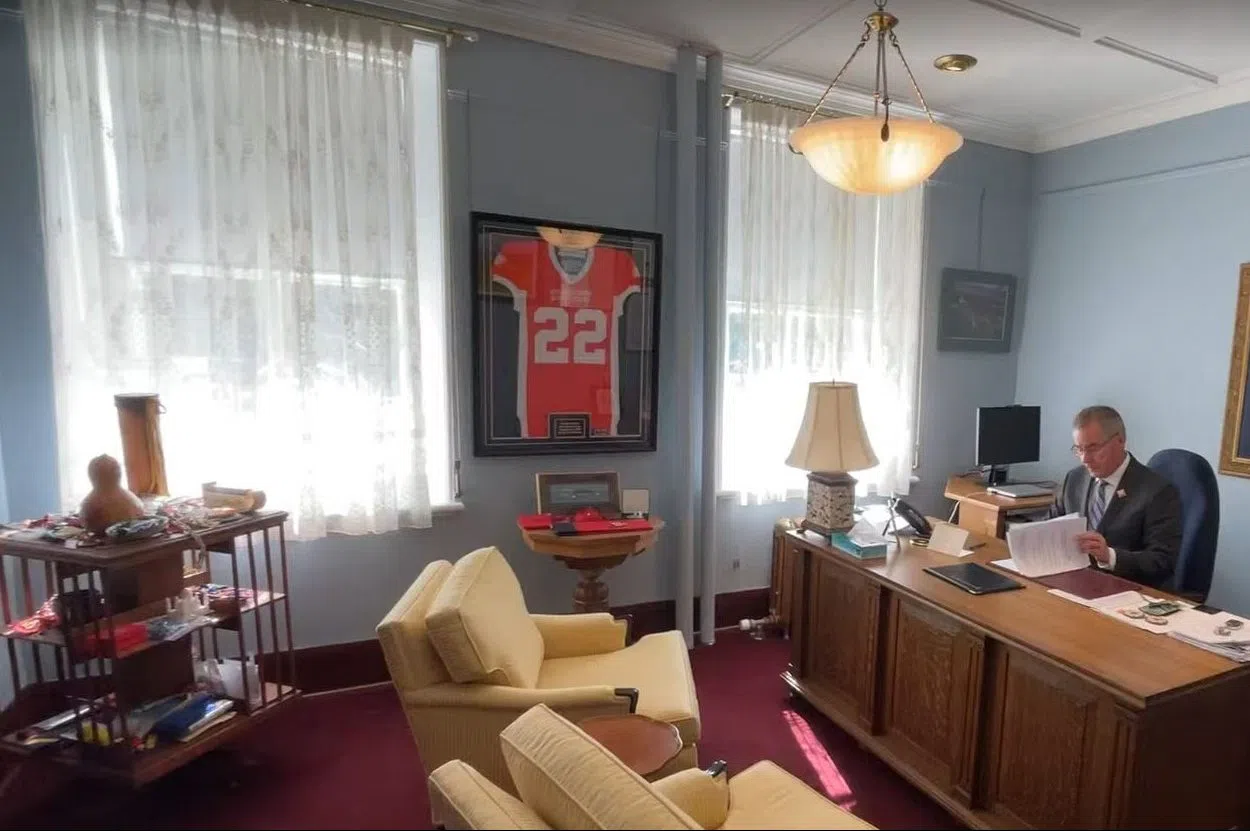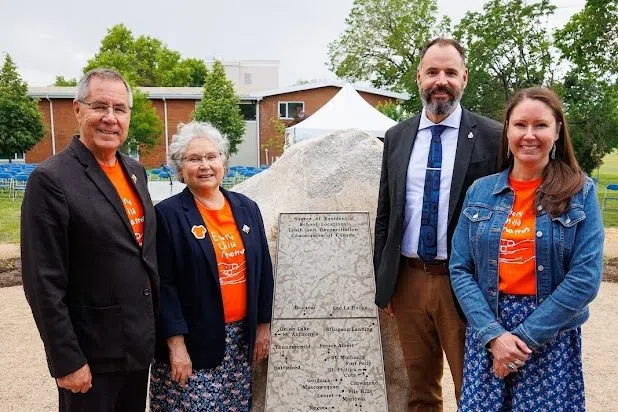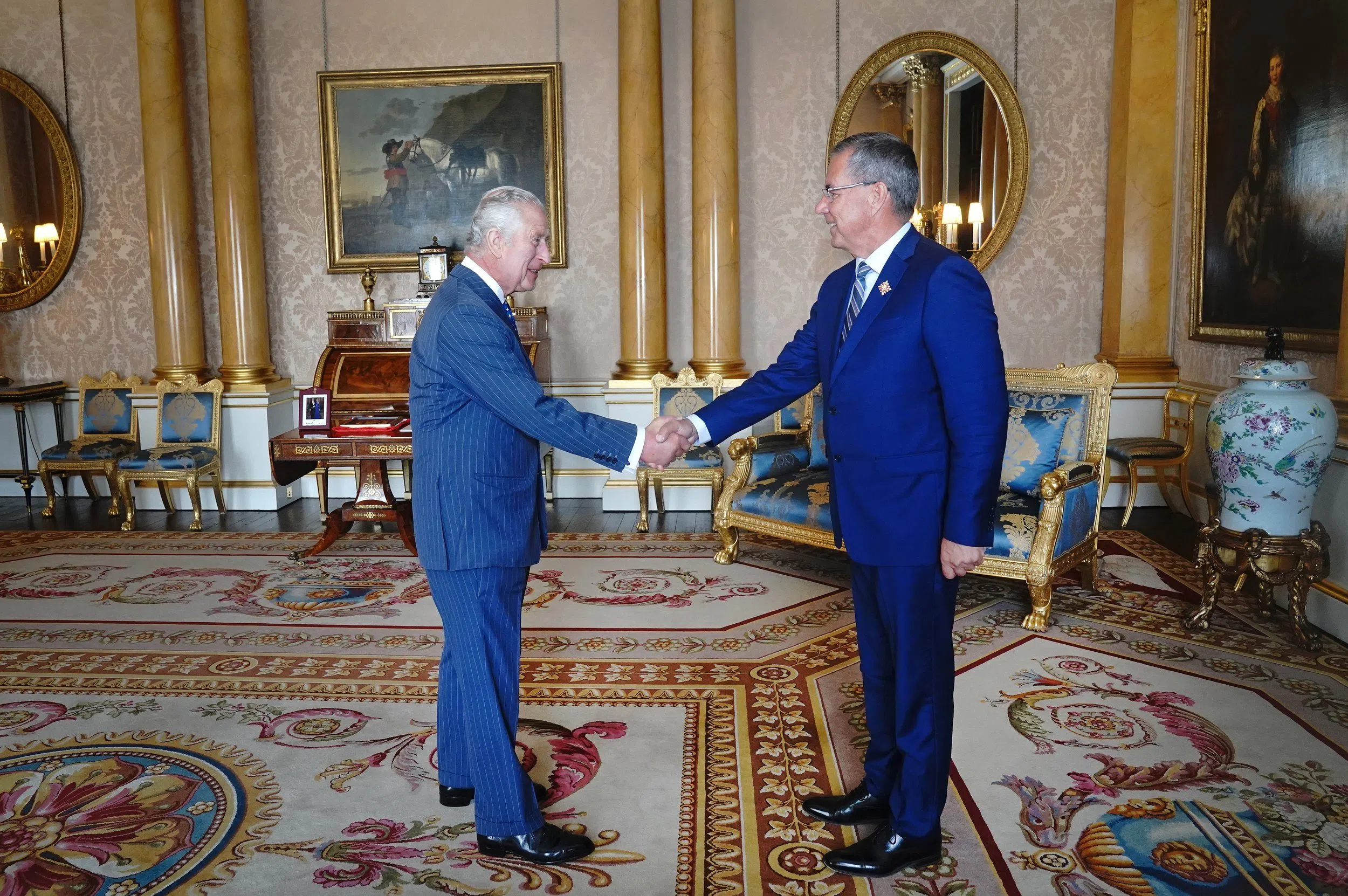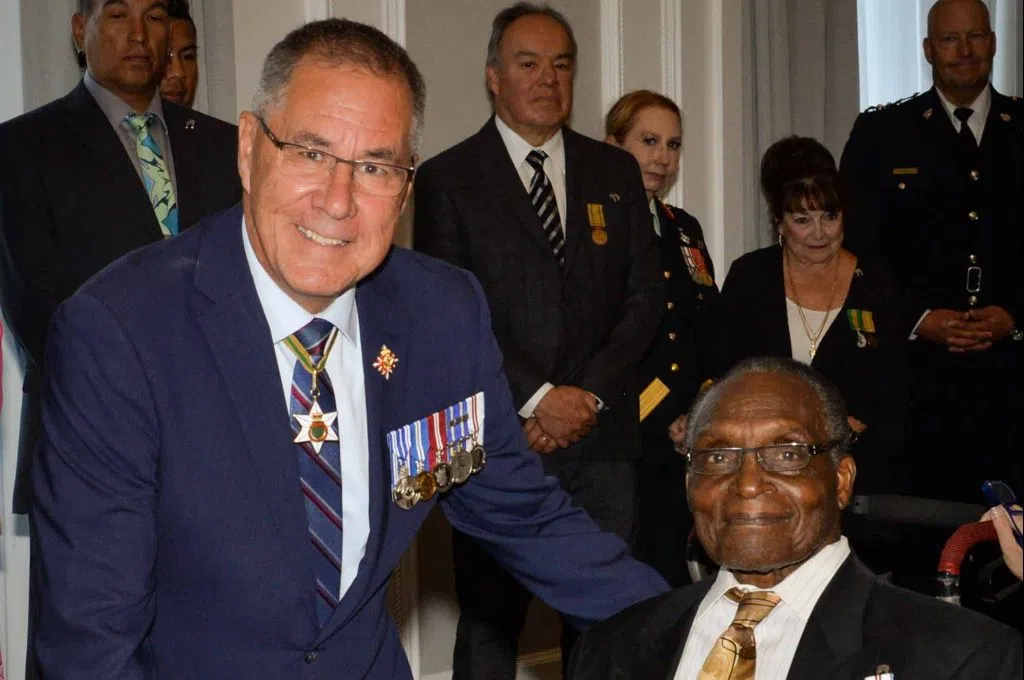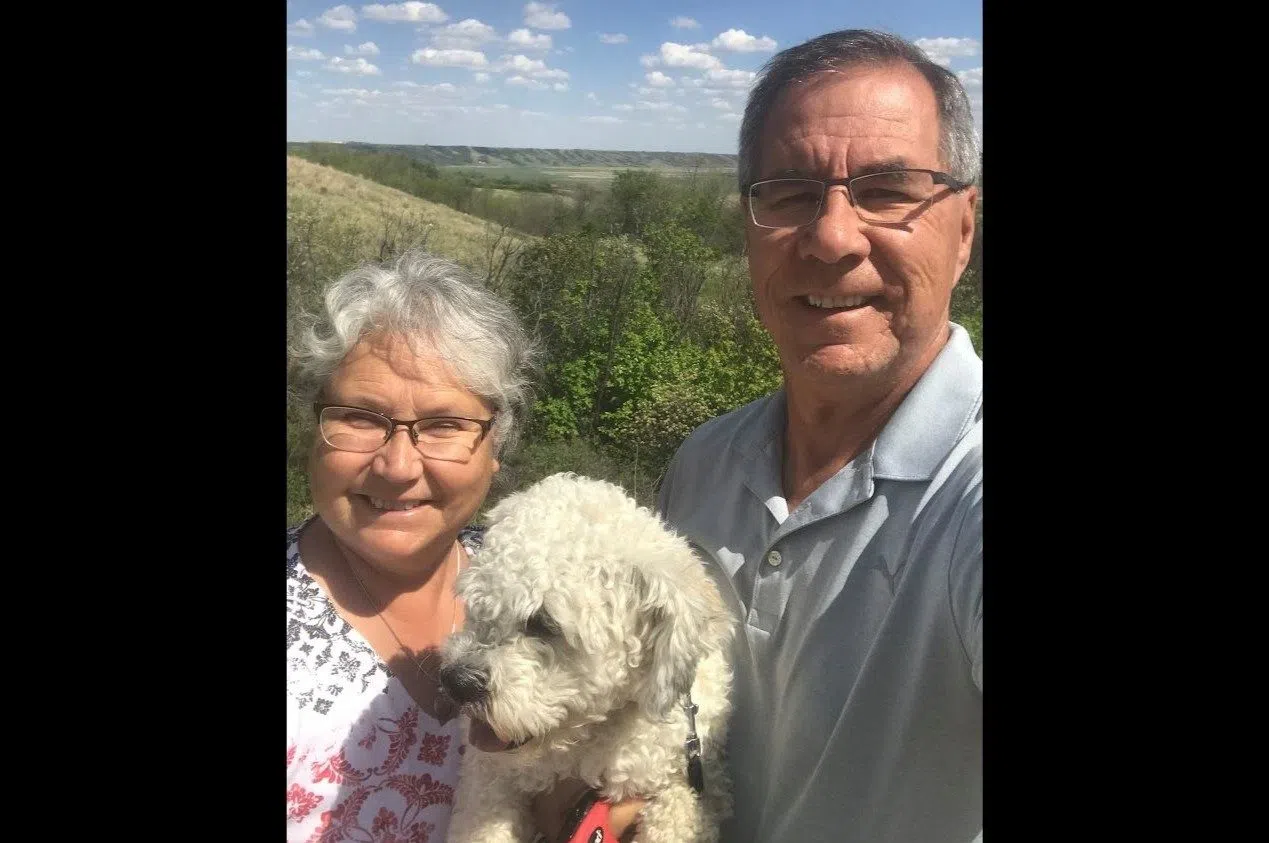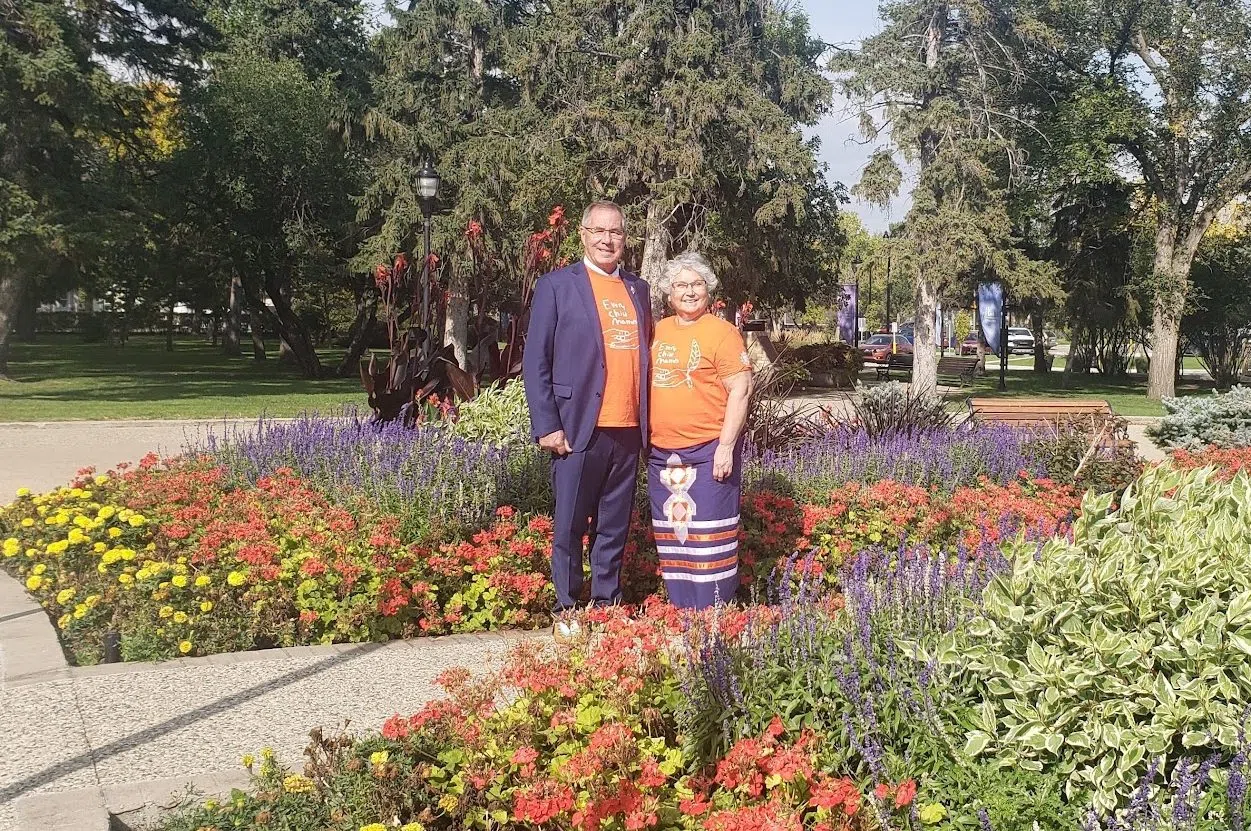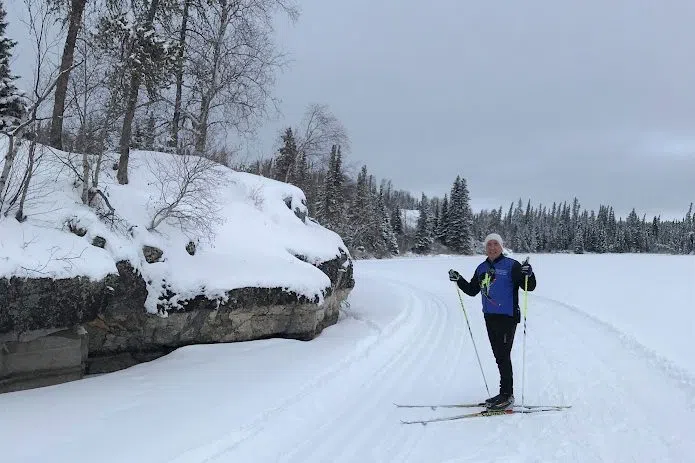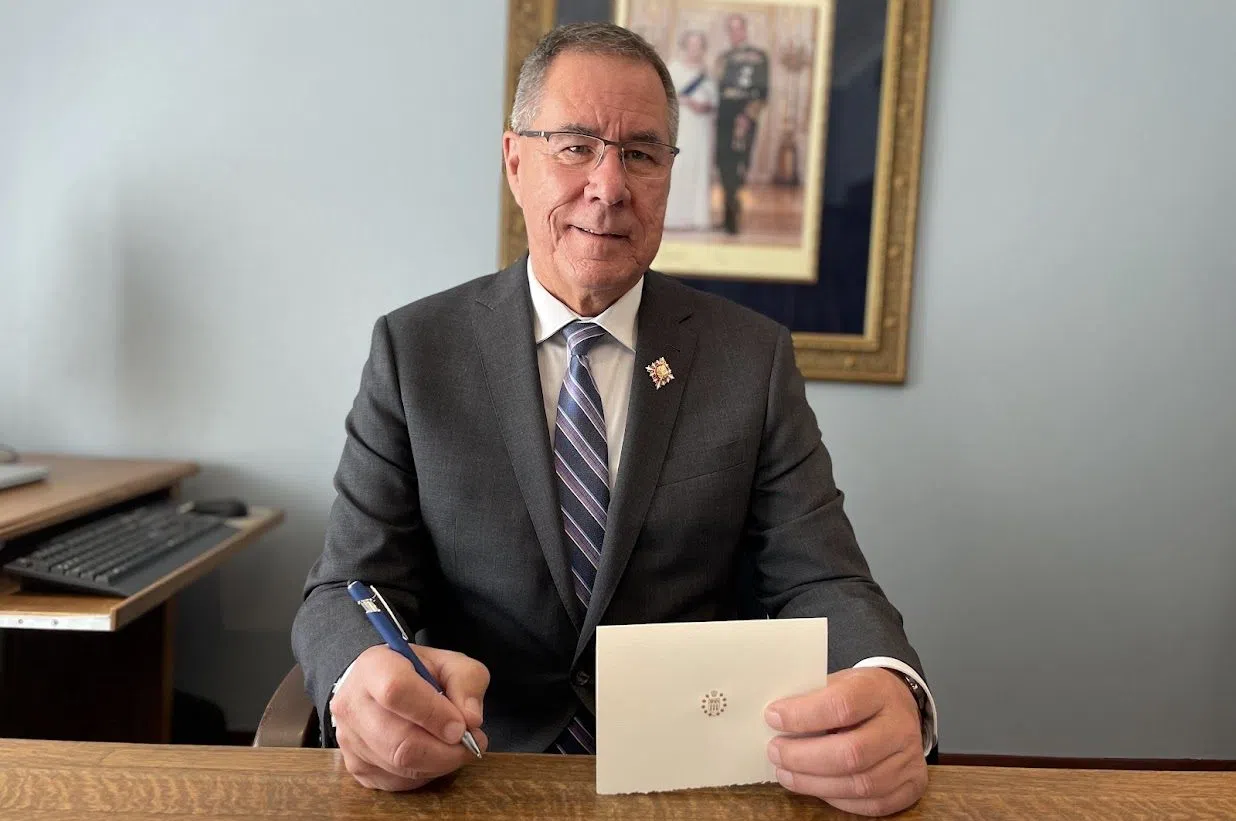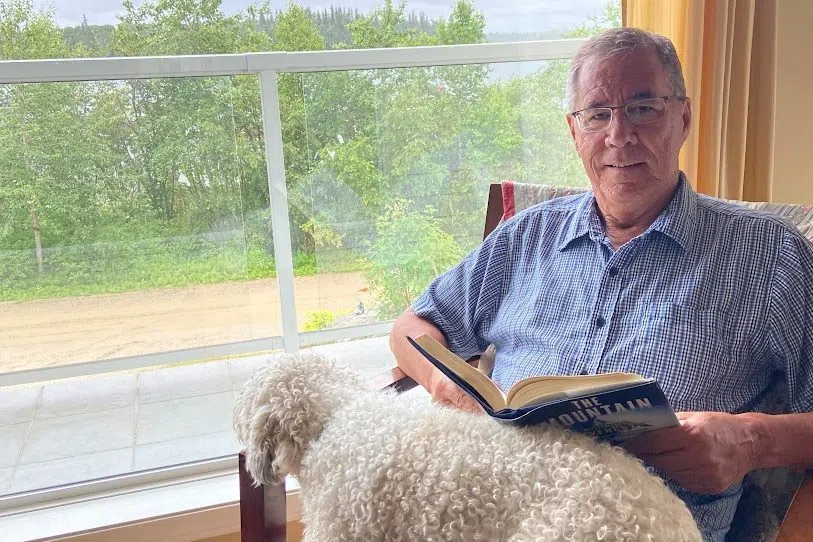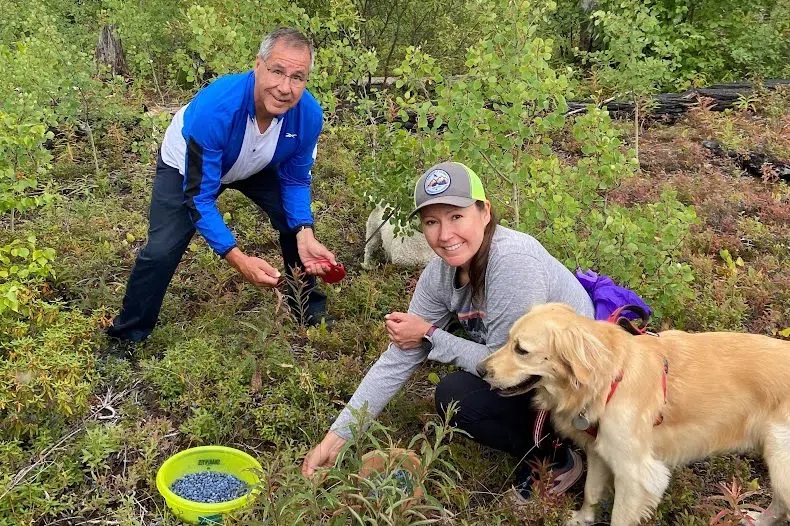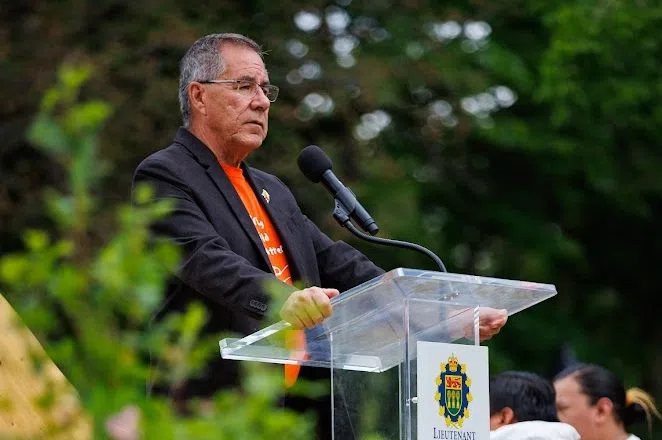Sixty years ago, Russ Mirasty was just like any other little boy growing up on the Lac La Ronge Indian Band.
Today, he sits in the office of the lieutenant-governor of Saskatchewan, occupying a role he never imagined an Indigenous man — let alone he — would fill.
His Honour the Honourable Russ Mirasty was sworn in as Saskatchewan’s 23rd lieutenant-governor on July 17, 2019. He is the first Indigenous person appointed to the office and makes a point to honour his roots while fulfilling his duty of representing His Majesty The King in Saskatchewan.
Mirasty exudes a quiet confidence as he enters the receiving room of Government House in Regina, a space that has been used to host dignitaries from around the world for more than a century. Every corner of the formal sitting parlor is adorned with Indigenous artwork that has been gifted to him throughout his time in office.
He proudly displays many colourful quilts, paintings and beaded works, hoping they will invite questions and conversations about his heritage from everyone who enters.
Aside from his culture, Mirasty also speaks passionately about his family. His wife Donna Mirasty has stayed steadfastly by his side as he has navigated his many public roles, and he says she is an integral cog in the office of the lieutenant-governor. The couple has two children together, and enjoy spending the little free time they have outside of their official duties with their grandchildren.
Mirasty is often spotted around the province shaking hands, cutting ribbons or handing out awards, but he is preparing for quieter days as his time as lieutenant-governor draws to a close.
To commemorate the fifth anniversary of his appointment, he sat down with 650 CKOM’s Brittany Caffet and Alex Brown for a private interview, providing an intimate glimpse into his time in the role as well as his personal life.
_____________________________________________________________
CKOM: Is there an end-date for this role?
MIRASTY: It’s a five-year term. And generally speaking, lieutenant-governors are held fairly close to that. There’s no policy or anything that says on the last day of five years, you’re out the door. There’s a process of obviously finding a new lieutenant-governor. There can be no gap right in terms of lieutenant-governors because of the work that’s required with government. We will stay until somebody’s named and actually gets sworn in, and then we will move on. So we don’t know precisely when that’ll happen, but I expect it’ll be sometime this year.
Saskatchewan’s Lieutenant-Governor Russ Mirasty presents Police Inspector Patrick Nogier with a Protective Service Medal at Saskatoon’s police headquarters on Tuesday, October 8th, 2019. Nogier is now Prince Albert’s Chief of Police. (Chris Vandenbreekel/650 CKOM)
Five years ago, you were sworn in as LG. How did you learn about your appointment?
My wife, Donna and I were home in La Ronge and the phone rings up just out of the blue. This gentleman identifies himself as being part of the Privy Council Office in Ottawa. He said ‘Your name has come out as a possible candidate for lieutenant governor of Saskatchewan.’
They only gave us 48 hours to decide, so we had to make a decision very quickly. Donna was there in the house so I told her, and she was immediately supportive of the idea. Donna phoned our two children, and they were supportive as well. I took the full two days to think about it. By that time, I had been working for 41 years, and I thought ‘Is this really something I want to commit to for another five years?’ On top of that, I had to think about being an Indigenous person, stepping into this very colonial role. Indigenous people should be at least given the opportunity to occupy these different positions across the country. I finally decided that I think this was something that I should do, so obviously accepted. Here we are.
Lieutenant-Governor Russ Mirasty said he and his wife often drive themselves to public events so they can travel with their dog. Jasper is a five-year-old Bichon Shih Tzu cross. (Submitted)
When you were a child, did you ever imagine that you would one day be in this role?
Absolutely not. That was something that was well beyond my realm of thinking, or even my world growing up on the reserve. I was very fortunate — and I say it very sincerely — to get through high school and then join the RCMP and reach the ranks that I did. To think back to running around as a kid on the reserve, no. It was hard to even think beyond the borders of the community, never mind occupying these spaces.
Mirasty proudly displays Indigenous works of art in his Government House office in Regina. (Alex Brown/650 CKOM)
How have you worked to celebrate and include your Indigenous culture in this role?
We wanted to make this place accessible to everyone but in particular Indigenous people. Because of that colonial history, there’s sometimes this notion that ‘I wouldn’t be welcome. It’s not a place for me,’ and obviously, Donna and I demonstrate that’s not the case.
The art we intentionally display are all gifts that we received from communities and organizations around the province. We host many international visitors in this room, and they get to see that as well. And they ask questions about the art and the blankets.
A residential school memorial was built on the grounds of Government House for a number of reasons. Mainly because It’s part of the history of Canada, and the history of Saskatchewan. We get many tours of school children and others that come by here. It’s an important addition to the history of this place.
A very special aspect of being lieutenant governor is being able to incorporate the Cree language into my duties. I have done this to inform, educate and contribute to reconciliation. The response across Saskatchewan has been very positive.
Mirasty is proud of the work he has done to include and celebrate his culture during his time as Saskatchewan’s lieutenant-governor. The Saskatchewan Residential School Memorial was dedicated on the grounds of Government House on National Indigenous Peoples Day, June 21st, 2022. His children Matthew and Jennifer were in attendance to mark the milestone. (Submitted)
What was your first interaction with the Crown like?
Well, there’s a bit of a story there. When lieutenant-governors are appointed, arrangements are made as quickly as possible to travel to England and meet at that time, in my case, the Queen. Unfortunately, the appointment was made for May of 2020, but the world changed. Because of the pandemic, we weren’t able to travel to England and meet Her Majesty. Then unfortunately when the pandemic passed she was ill and passed away.
But as soon as Prince Charles became King, arrangements were made for us to travel there. In May 2023 we were there to meet with him. He was very cordial, friendly, and made us feel comfortable. We were sitting in a room much bigger than this, but kind of like this setting and just the three of us in the room. He was very knowledgeable and well-informed about Saskatchewan and Canada. He knew that I spoke Cree, so he’d done his homework.
I didn’t really feel nervous going into the meeting. I find these situations interesting — that’s the word I use versus being nervous. It was just something new, and because we’d experienced so much in our lifetimes, he’s just another VIP so to speak. Obviously, he is much more than that, but really… just another person to meet in a new environment.
King Charles III receives the Lieutenant-Governor of Saskatchewan, Russell Mirasty, during an audience at Buckingham Palace on Tuesday, May 16, 2023. (Victoria Jones/PA Wire)
Who is the person you were most excited to meet in this role?
The one person that I really enjoyed meeting was Roughrider legend George Reed. And, of course, growing up here I would hear about him and know about him. I’d met him informally and very casually at a couple of events here in Regina, but the day that I was able to present him with a medal… That was pretty special.
Lieutenant-Governor of Saskatchewan Russ Mirasty and Roughrider legend George Reed. Reed was a recipient of a Queen Elizabeth II Platinum Jubilee Medal in 2022. (Government of Saskatchewan Protocol Office)
What challenges have you faced while navigating this role?
We get many more requests to attend events or communities than we can possibly manage or agree to. That’s the biggest challenge. We firmly believe that we need to be accessible to whoever, throughout the province but again it’s just sometimes it’s just not possible. We probably push it a little more than we should but that’s okay.
Lieutenant-Governor Russ Mirasty said he and his wife often drive themselves to public events so they can travel with their dog. Jasper is a five-year-old Bichon Shih Tzu cross. (Submitted)
Have you dealt with any major protocol blunders?
When we meet with people in this role, people are nervous. Some forget certain steps of the protocol, and we just flow with it. We never stop to correct people, unless they ask. If they ask, we’ll tell them the appropriate response. We try to make people comfortable. And Donna is very good at that, especially.
During one medal presentation ceremony, I dealt with a totally unexpected response. It was a presentation of a medal, and as she left the stage, she kind of looked at the audience and said, ‘Does he ever have soft hands!’ Other times people are so nervous they say ‘We don’t even know if we’re able to talk to you or if we’re supposed to talk to you!’ We’re just ordinary people. You can talk to us.
While there are certain protocols that people are expected to follow when meeting a lieutenant-governor, Mirasty said he and Donna are very flexible when it comes to public interactions. Their main priority is making people feel comfortable. (Submitted)
Has this role changed you?
I’ve stayed the same. People have commented about that actually, saying directly ‘You know, the role hasn’t changed you or Donna.’ I appreciate that very much. When we are home and see neighbours, they just call me Russ. They appreciate the role that we’re in, but it’s just Russ and Donna. We wouldn’t want it any other way.
Mirasty grew up in La Ronge, and still enjoys partaking in many outdoor activities in the area. He and his wife Donna both enjoy skiing. (Submitted)
What is something about your daily duties the public doesn’t know?
A big part of the job is signing greeting cards! I’ve signed literally thousands of them in my time in office. I do sign them versus an electronic signature. I just think it’s much more meaningful for people.
Lieutenant-Governor Russ Mirasty says he has signed thousands of greeting cards during his time in office. (Alex Brown/650 CKOM)
What hobbies do you have?
I still remain very active, always have been, and so in the summertime, it’s running and jogging still. I’m slowing down a bit, but still love to get out on trails in the bush and do that or hiking and some canoeing in summer. We’re right on the lake in La Ronge so that’s enjoyable. And in the winter cross country skiing. We often say when we retire, we need to be at a place where we can ski out our front door.
And on a more personal level, I sketch a lot and hope to kind of expand on that during less busy days.
Lieutenant-Governor Russ Mirasty says he is looking forward to quieter days once his time in office is done, and plans to focus on his private hobbies like sketching and reading. (Submitted)
Most of us have only ever seen you in a suit. What is your go-to outfit when you are back home in La Ronge?
Sweats for sure! Sweatpants and a t-shirt.
While Mirasty is usually seen sporting a suit, he said he prefers to wear comfortable clothing while back home in La Ronge. (Submitted)
Any advice for the next lieutenant-governor?
Be flexible, be open-minded, be willing to meet people in their communities and just enjoy what Saskatchewan has to offer.

